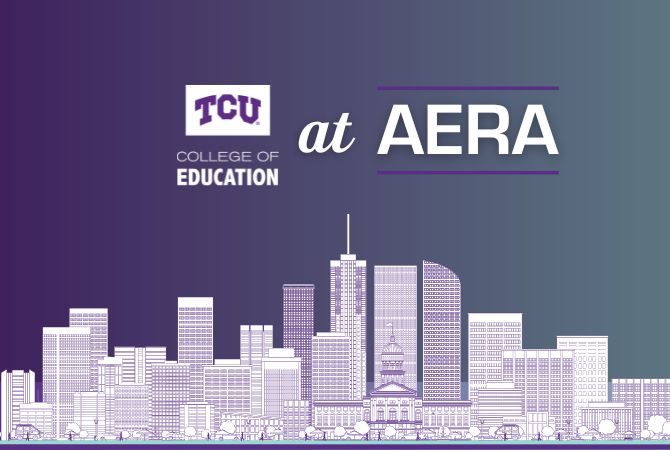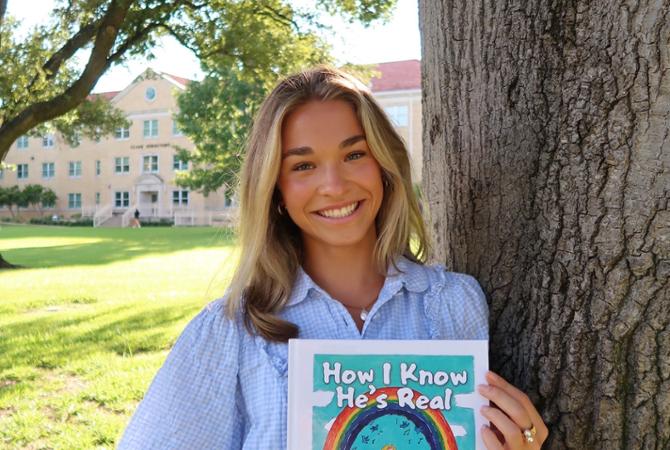 A group of TCU Education students took a week-long trip to the Holocaust Museum of
Houston as part of the Warren Fellowship program. The spring trip was a culmination
of studying the Holocaust and antisemitism in Dr. Jan Lacina’s literacy leadership
class.
A group of TCU Education students took a week-long trip to the Holocaust Museum of
Houston as part of the Warren Fellowship program. The spring trip was a culmination
of studying the Holocaust and antisemitism in Dr. Jan Lacina’s literacy leadership
class.
“I was compelled to integrate course goals, readings and discussions about the Holocaust into my class because of recent antisemitic acts that took place in Texas,” Lacina said.
Contemplating how she could continue making an impact with this work, Lacina nominated her 10-student class for the Warren Fellowship through the Holocaust Museum Houston. The Warren Fellowship was created in 2003 and has over 400 alumni.
“The Fellowship's main objective is to provide new teachers with the necessary historical and pedagogical tools for teaching the Holocaust from the onset of their teaching careers,” said Wendy Warren, director of education at Holocaust Museum Houston.
Warren explained that participants have the opportunity to work with scholars, educators and survivors of the Holocaust.
“As the last generation to hear directly from survivors, the Fellows have a unique opportunity and responsibility to carry their stories forward,” she said.
Meeting the survivors themselves was the most impactful part of the week for Anna Mayes, a graduate student studying Curriculum and Instruction: Language and Literacy.
 “My group had the honor of speaking with Bill Orlin, a Jewish man originally from
Poland, who as a child lived on the run from the Nazis from 1939-1945,” Mayes said.
“His story of survival and his life after the war as a soldier in the U.S. army taught
us that democracy is a privilege we must protect at all costs.”
“My group had the honor of speaking with Bill Orlin, a Jewish man originally from
Poland, who as a child lived on the run from the Nazis from 1939-1945,” Mayes said.
“His story of survival and his life after the war as a soldier in the U.S. army taught
us that democracy is a privilege we must protect at all costs.”
The experience at the Holocaust Museum also reinforced the work done in Lacina’s class. Tiffany Nakamura, a graduate student also studying Language and Literacy explained that the museum’s artifacts and primary sources were helpful in strategizing how to teach about the Holocaust to an elementary audience.
Bianca Tucker, a Language and Literacy graduate student who participated in the Fellowship, discovered a newfound passion for Holocaust education and the critical role literacy and instruction plays in it.
“Teachers are not only tasked with conveying history in their classrooms, but also have the responsibility to do so with careful consideration of what resources they draw upon to ensure it is done with respect and accuracy.”
Lacina shared that the experience was incredible for all involved. She and her students are prepared to take what they learned through their week at the Holocaust Museum and apply it in their classrooms. In this summer class, they focused on the principles of effective literacy leadership.
“The students in this class will make curriculum and instruction decisions in their future classrooms,” Lacina said. “Literacy instruction is an important part of children’s entire educational trajectory, and critical and difficult topics of history must be part of that experience as we seek a more just and peaceful world. Not only does this work relate to the DEI goals of the college and university, but it is important for all of humanity.”

